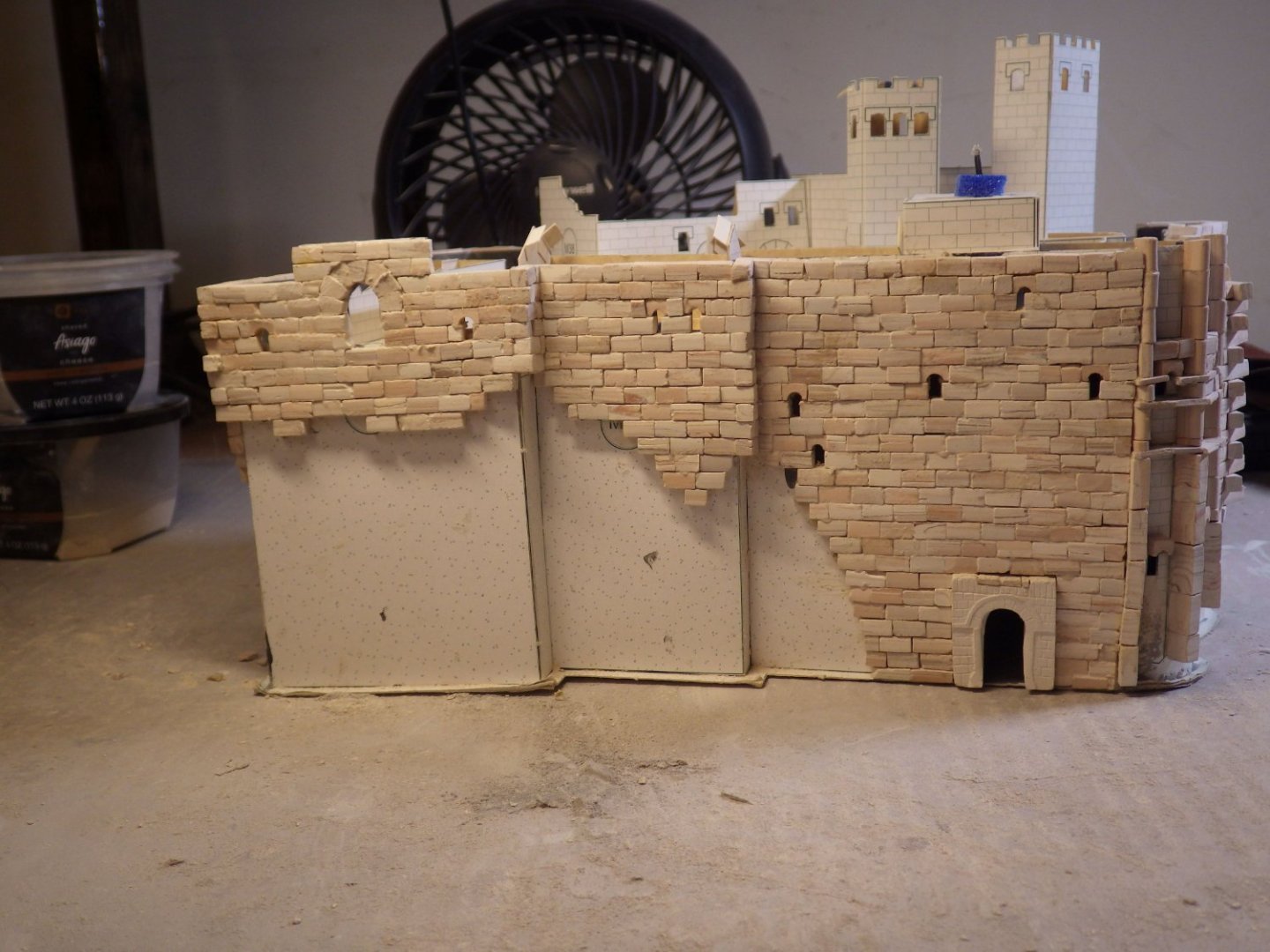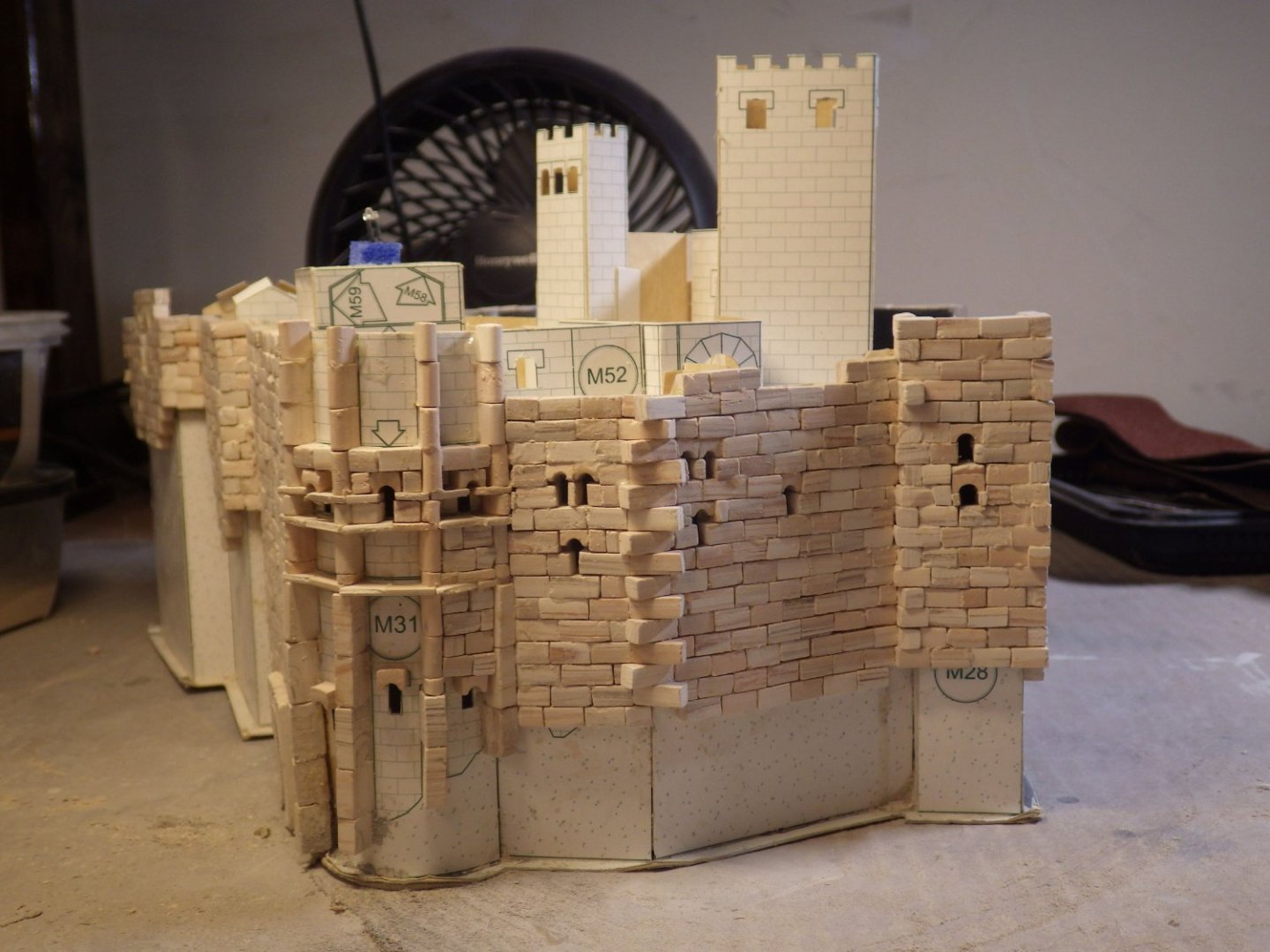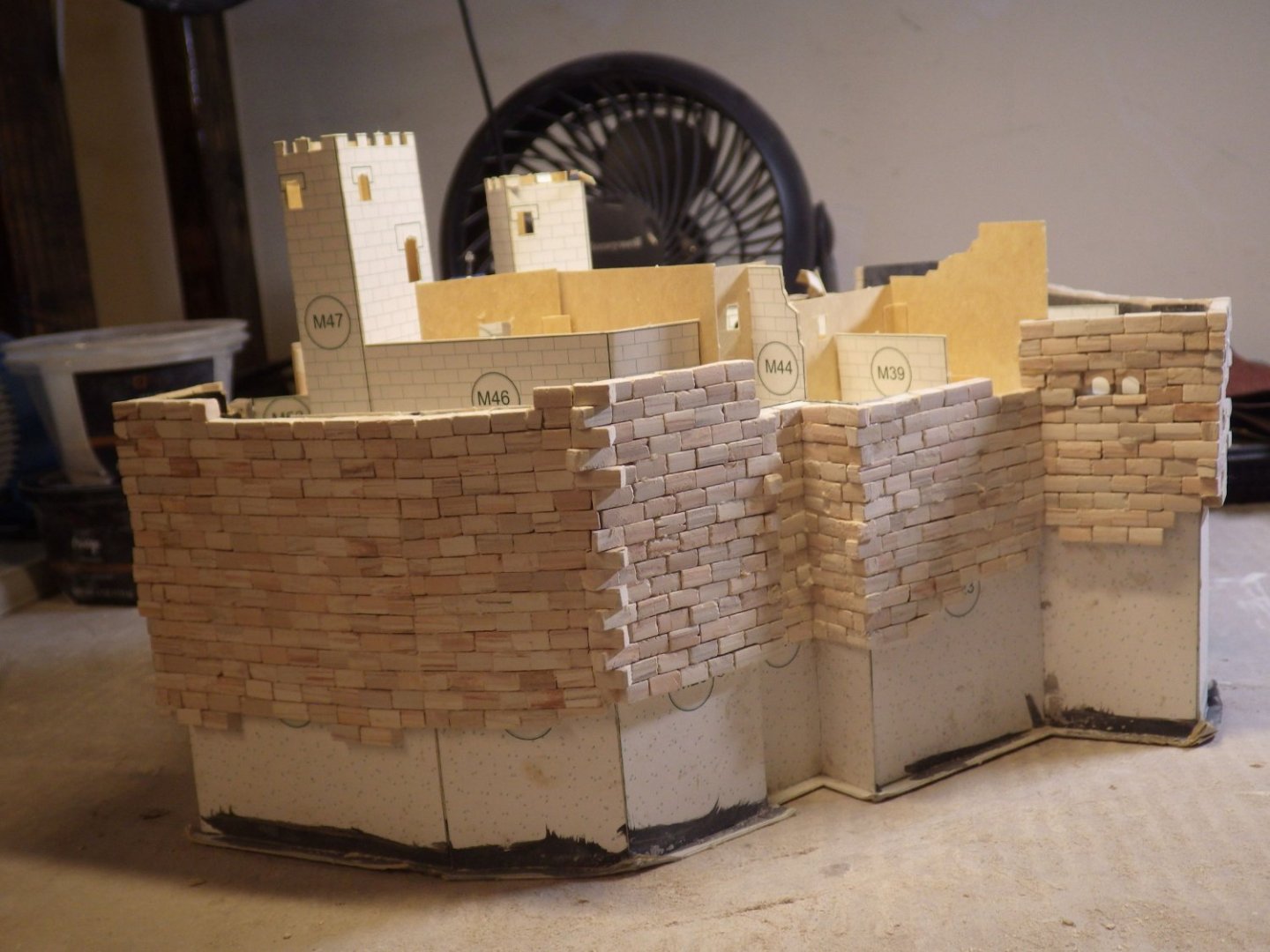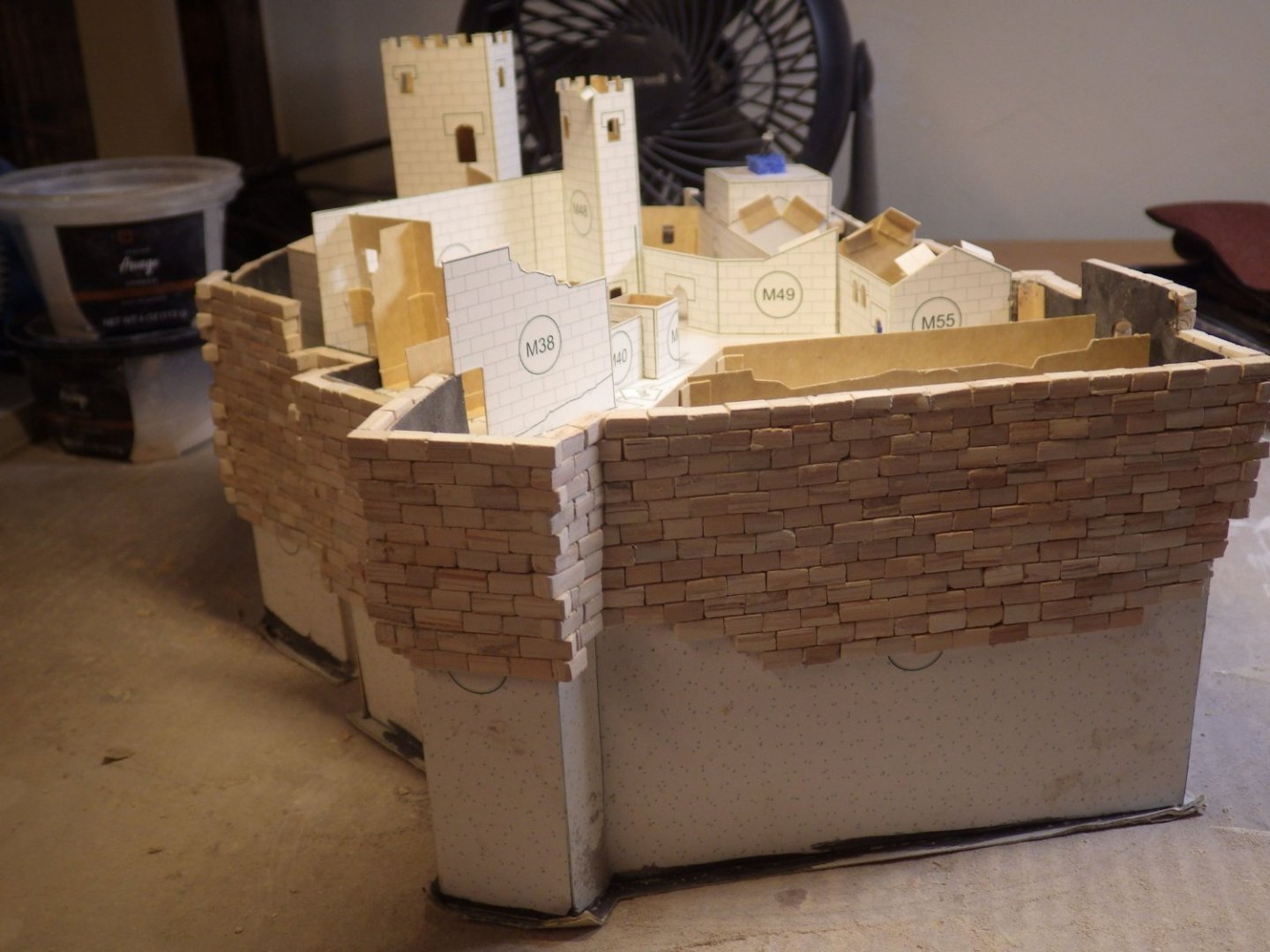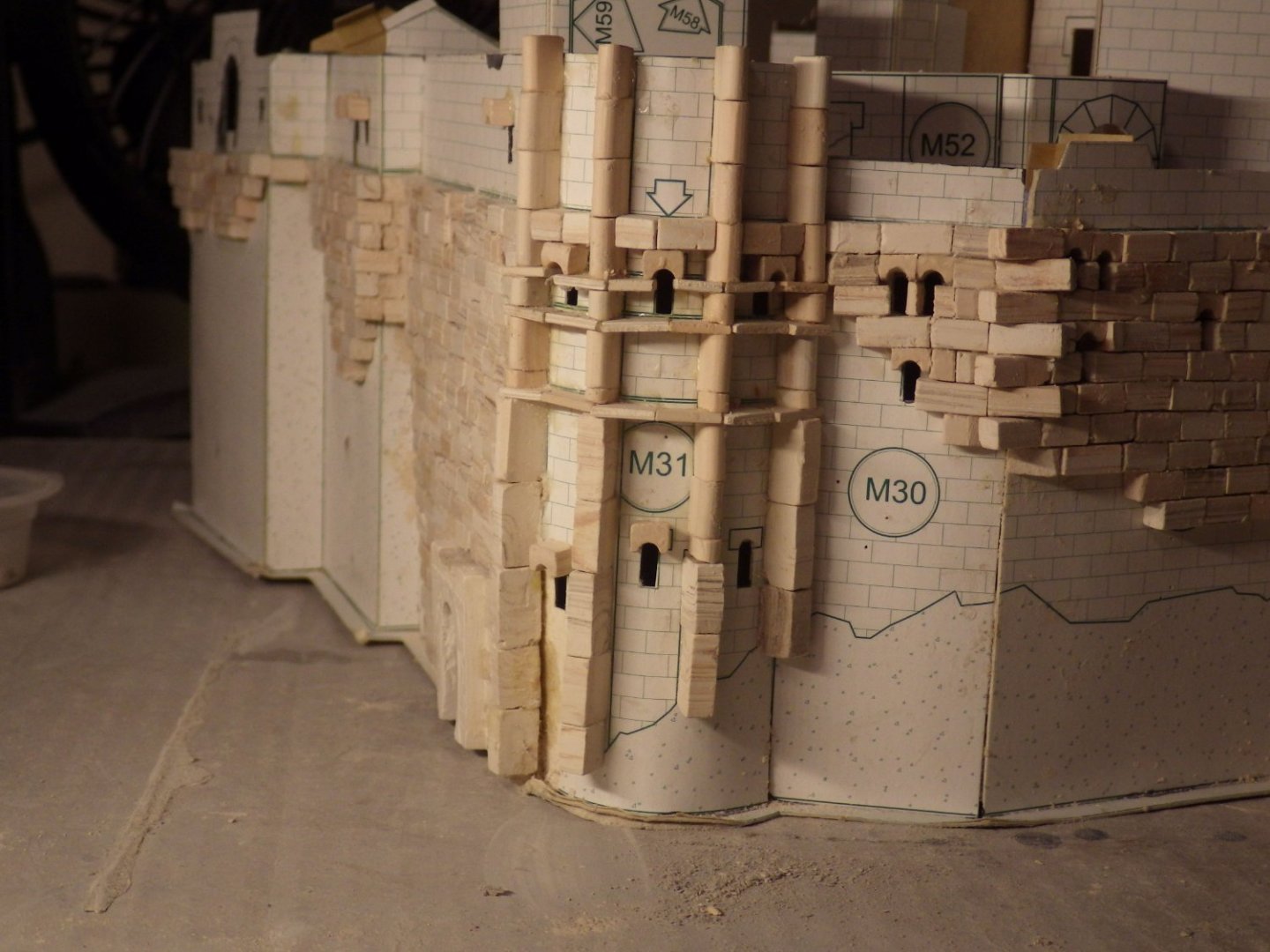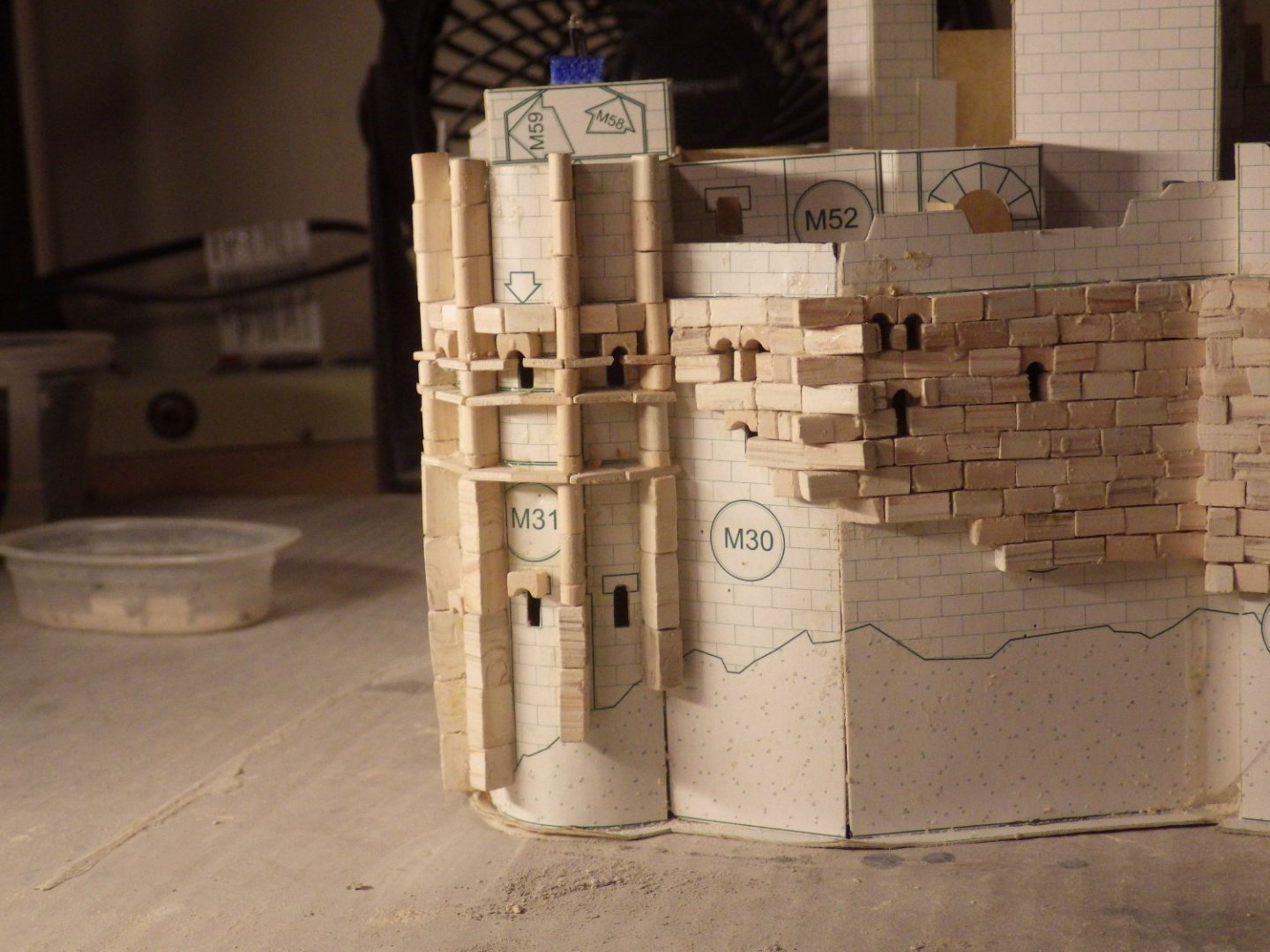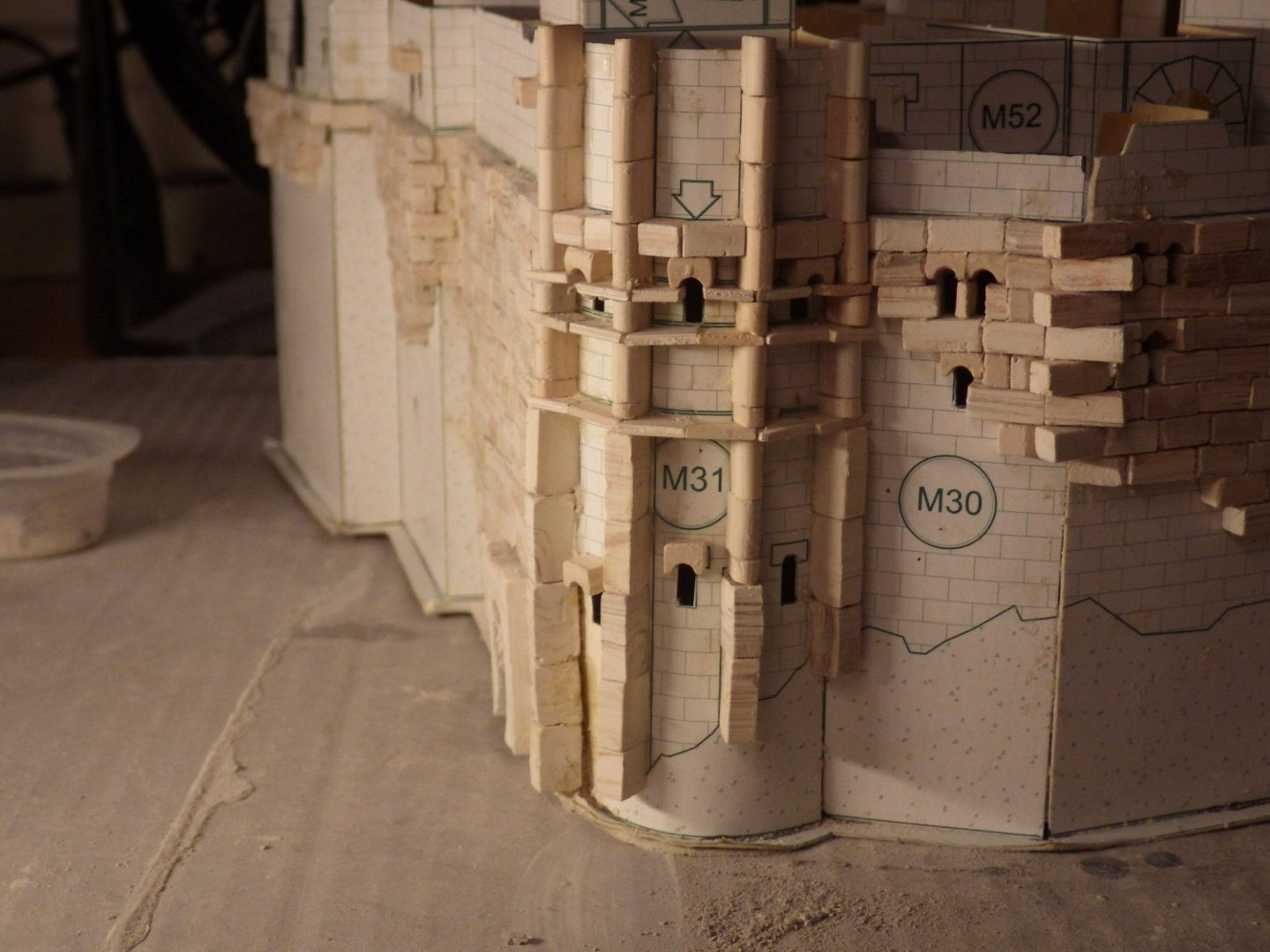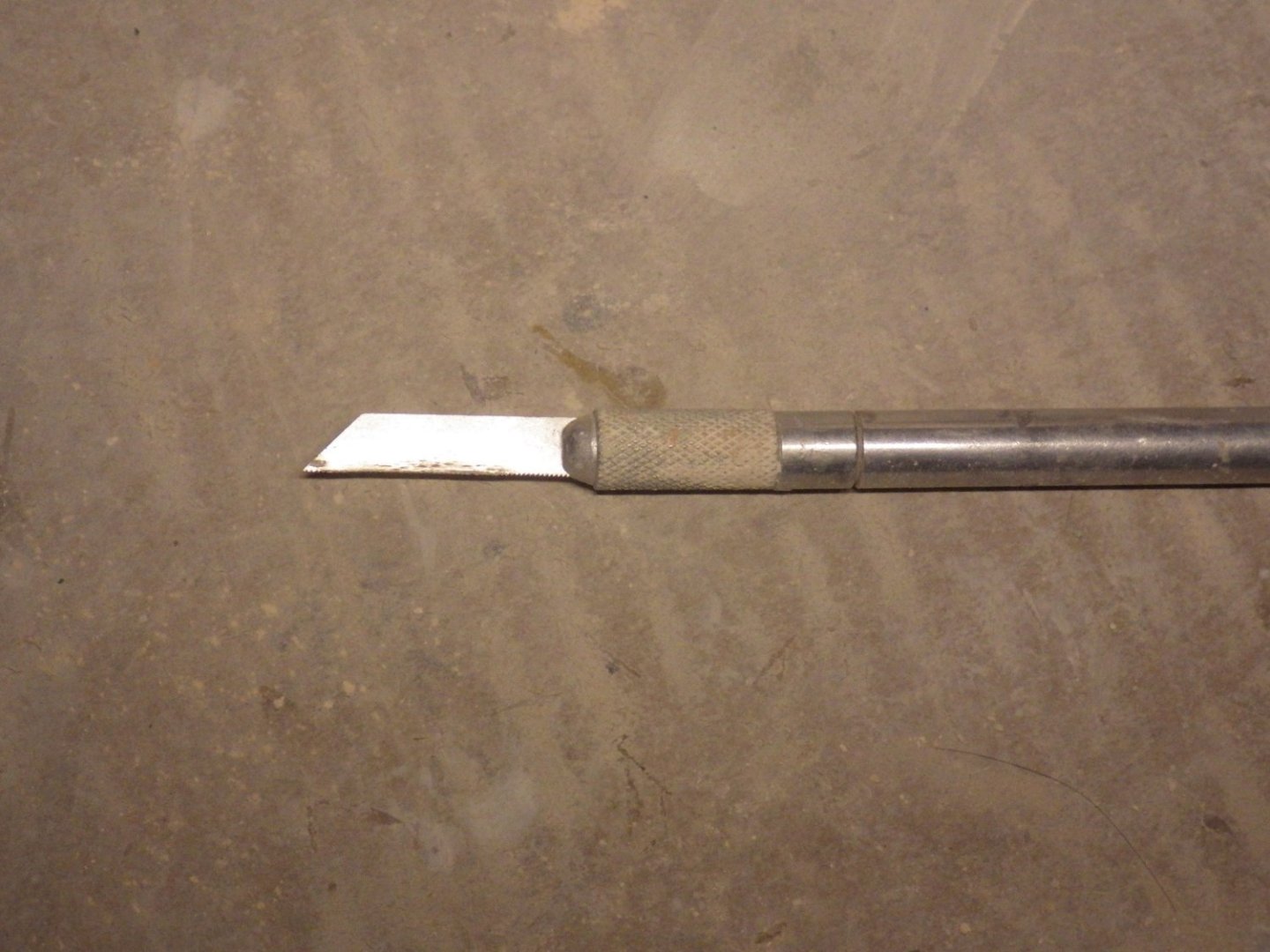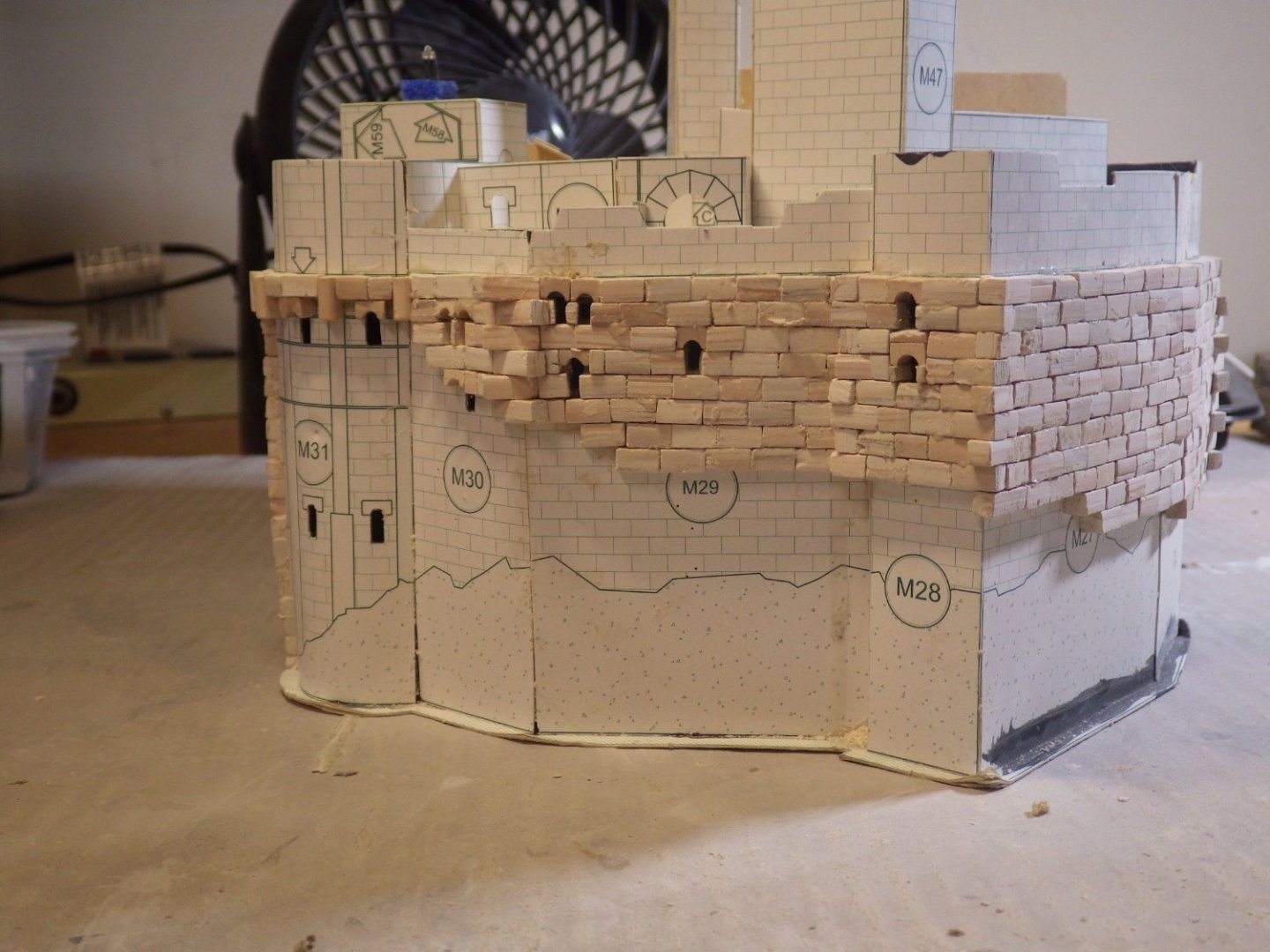
king derelict
Members-
Posts
3,291 -
Joined
-
Last visited
Content Type
Profiles
Forums
Gallery
Events
Everything posted by king derelict
-
My other Hobby by Javlin - Tabletop/Nightstand - 1/1
king derelict replied to Javlin's topic in Non-ship/categorised builds
Beautiful work Alan -
Thank you very much OC. I started cleaning up the walls and it has rekindled my enthusiasm. I finished the round tower and even laid a few blocks on the roof details. I've found I made a mistake with setting up the template in one spot but I think it's going to be unnoticeable unless the governors of Loarre castle show up with dividers and plans Alan
-
My other Hobby by Javlin - Tabletop/Nightstand - 1/1
king derelict replied to Javlin's topic in Non-ship/categorised builds
Wow, that's a great skill. I seem genetically incapable of making a square cut on a piece of wood so I admire this very much. looks great so far Alan -
Still plugging along and reached a bit of a milestone today. All the outer walls of the main toers are complete - well apart from filling in the intricate little bits on the round tower - but it still feels like I'm making progress. The windows and archway look a bit rough but they will be opened out as part of the general sanding and clean up. There is some serious sanding ahead. The bag of blocks still looks pretty healthy so I might make it with what was provided. The details of the upper section are going to be interesting. Some areas are going to be difficult to get in to sand down and shape and there are a few bits that I am not really sure how they are supposed to look. The instruction sheet ducks this stuff and the photos don't really show what is going on. I'm hoping it will become more obvious as the blocks pile up. It may have been easier to have added the cardboard templates a bit at a time and blocked up each section but I wanted to know where the lights needed to be placed and setting out the templates was the only sure way to get it right. I think its still doable but it may increase the cuss factor. Thankfully most of the courtyards do not need tiling. I'm thinking about taking a break to do something quick but different after the tower walls are completely finished and cleaned up but at the same time I am still enjoying weeing this come together. A compromise might be to paint some more figures which will be needed later on. Thanks for looking in and I hope everyone has a great weekend and Labor Day holiday in the US Alan
-
And sometimes that makes it worse. Trees are higher and some older buildings are more susceptible. When Francis came through here after more than thirty years without a burrito really made a mess. Two weeks without power and I liked a six foot high pile of branches that stretched thirty feet down the kerb.. Wilma came through the following year and the Lights were off for two days and the yard had very little debris. I hope all is well over there Craig Alan
-
I summoned up some extra patience this morning and decided to tackle that complicated round tower. Lots of shaping and cutting blocks needed but I wanted to get a start on it. In the end I made more progress than I expected and got all the tiles and columns completed. I suspect filling in with the standard blocks is going to be another day or more of fiddling. I found the Exacto saw blade was ideal for part cutting the blocks to size and then cracking them along the saw line. This should all look a lot better when sanded to final shape but I want to let the glue really get a hold before that and also if I fill in the gaps it will stabilise the whole thing. I'm slowly closing in on completion of the lower section of the tower Thanks for looking in and for the likes and comments Alan
-
Back at last with the pile of blocks and the sanding sticks. I completed the lower section of another wall of the tower and added the portal. The first windows are being worked around. There will be some cleaning up when I start sanding the walls down. The curved section of the wall with the pillars and tiles is going to be a slow process with lots of fiddly little pieces to file down. Its good to be back making a lot of dust again. I hope everyone has a great weekend and thanks for looking in and the likes Alan
-
This last two years I have seriously thought about it. Yearly premiums are running about $7000 and to keep it down I have dropped coverage on contents, increased deductibles so I get less and less for the money. And of course if you have the temerity to claim they will either drop you or hike the premium. Three years of premiums would just about pay for a whole new roof. I don't see any signs of the market improving any time soon Alan
About us
Modelshipworld - Advancing Ship Modeling through Research
SSL Secured
Your security is important for us so this Website is SSL-Secured
NRG Mailing Address
Nautical Research Guild
237 South Lincoln Street
Westmont IL, 60559-1917
Model Ship World ® and the MSW logo are Registered Trademarks, and belong to the Nautical Research Guild (United States Patent and Trademark Office: No. 6,929,264 & No. 6,929,274, registered Dec. 20, 2022)
Helpful Links
About the NRG
If you enjoy building ship models that are historically accurate as well as beautiful, then The Nautical Research Guild (NRG) is just right for you.
The Guild is a non-profit educational organization whose mission is to “Advance Ship Modeling Through Research”. We provide support to our members in their efforts to raise the quality of their model ships.
The Nautical Research Guild has published our world-renowned quarterly magazine, The Nautical Research Journal, since 1955. The pages of the Journal are full of articles by accomplished ship modelers who show you how they create those exquisite details on their models, and by maritime historians who show you the correct details to build. The Journal is available in both print and digital editions. Go to the NRG web site (www.thenrg.org) to download a complimentary digital copy of the Journal. The NRG also publishes plan sets, books and compilations of back issues of the Journal and the former Ships in Scale and Model Ship Builder magazines.




